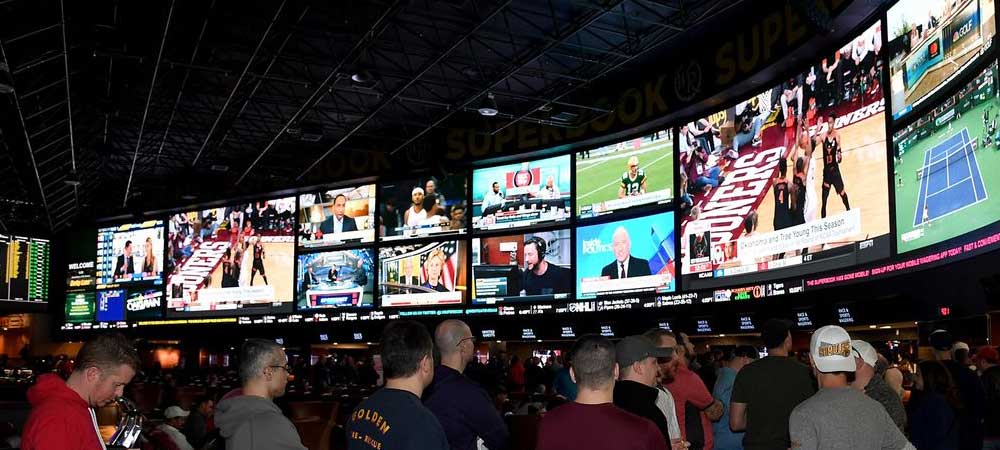- The legislative session in Connecticut ends on June 5.
- There is opposition for both bill CT SB 21 and bill CT H 5168, each of which would legalize sports betting.
- With no resolution in sight, the fate of legalized gambling on sporting events in Connecticut remains up in the air.
HARTFORD, Conn. –Two Connecticut sports betting bills are stuck on the table and neither is budging due to there being a split in which bills committee members prefer.
On Tuesday, a public hearing with the Joint Public Safety and Security Committee took place where both CT SB 21 and CT H 5168 were discussed at length. However, in the end, no progress was made to move either bill along.
The Bills Up For Debate
Two bills with two separate agendas make for two sides of a committee. Bill CT SB 21 legalizes sports betting for both mobile and internet applications as well as land-based establishments.
The problem with this bill is that it is exclusive to the Mashantucket Pequot Tribe and the Mohegan Tribe of Indians of Connecticut. This means that the Tribes would have the only all-access pass to the sports betting market in the Nutmeg State.
The second bill, CT H 5168 has it all when it comes to legalizing sports betting in Connecticut. Not only will Tribal businesses still be eligible to expand their operations with sportsbooks, but commercial locations would also be able to run sports betting lounges.
The Connecticut Lottery could jump into gambling on sporting events business if they wanted to as well. Mobile and internet platforms and retail locations would all be open for sportsbooks under this bill.
The Stalemate Conundrum
From the start, Governor Ned Lamont has told his constituents that while he is in favor of legal CT sports betting, he wanted a broad market that allowed both commercial and Tribal businesses to be included.
This is one reason that Lamont is in favor of the all-encompassing CT H 5168 bill over that of CT SB 21.
During the hearing, Mashantucket Pequot Chairman Rodney Butler spoke in favor of legalizing CT SB 21.
“Collaboration and flexibility is how good legislation is crafted. Sports betting falls within our current exclusivity agreement as Class 3 gaming and we have already invested $20 million in expansion projects,” said Butler.
Convicted felon and the current Mayor of Bridgeport Joe Ganim showed his support for CT SB 21.
“This bill provides additional revenue sharing and it will hopefully gain support throughout the state. We think it could be a great addition to the city of Bridgeport and the state and I support it,” said Ganim.
CT SB 21 would see a 10% tax rate for all mobile and online sports betting revenue and an 8% rate on retail locations.
The Connecticut Lottery Corp. CEO Gregory Smith gave his testimony in support of CT HB 5168.
“The Connecticut Lottery is an ideal sports betting regulator for the state. We suggest a licensed location in each town for in-person wagering. In-person wagering should make up 25% of all revenue gained by the market. We would return all proceeds to the state,” said Smith. All potential revenue results will pale in comparison with other operators which is why they have not yet put out estimations as we have.”
CT HB 5168 has a tax rate of 10% for land-based facilities and 14.75% for all online and mobile platforms. This would gain the state more profit in revenue from the sports betting market.
Groundhog Day
While it seemed like Connecticut was moving out of their “Groundhog Day” loop on the topic of gambling on sporting events, this deadlock puts the state right back in the loop. Governor Lamont has made himself clear on supporting a bill that is all-inclusive.
This has angered the Tribes, more specifically, Butler who has said that Tribes have the exclusive rights within their 30-year gaming compacts to sports betting. He went on to say that Lamont’s support of CT HB 5168 would be in violation of Tribal gaming compacts which could possibly cost the Nutmeg State over $250 million they receive from slot machines by Tribal casinos annually.
Ultimately, Connecticut would need the approval of Governor Lamont to move forward with legalizing sports betting. Even if CT SB 21 does pass, it would still require his signature and he’s made it known by all that he is not in favor of that particular bill.
Thus, Groundhog Day in Connecticut will continue while sports betting enthusiasts of the Nutmeg State hope for legalization to come to their state one day.
Advertising Disclosure
In order to provide you with the best independent sports betting news and content LegalSportsBetting.com may receive a commission from partners when you make a purchase through a link on our site.
News tags: Bridgeport | Connecticut | CT H 5168 | CT SB 21 | Gregory Smith | Groundhog Day | Joe Ganim | Joint Public Safety and Security Committee | Mashantucket Pequot Tribe | Mohegan Tribe of Indians of Connecticut | Ned Lamont | Rodney Butler | The Connecticut Lottery

Christina has been writing for as long as she can remember and does dedicated research on the newly regulated sports betting market. She comes from a family of sports lovers that engage in friendly bets from time to time. During the winter months, you can find Christina baking cookies and beating the entire staff at Mario Kart…the N64 version of course.


 College Football Betting
College Football Betting Best Online Sports Betting
Best Online Sports Betting Best Legal NFL Betting
Best Legal NFL Betting States With Legal Sports Betting
States With Legal Sports Betting Sports Betting Events
Sports Betting Events




